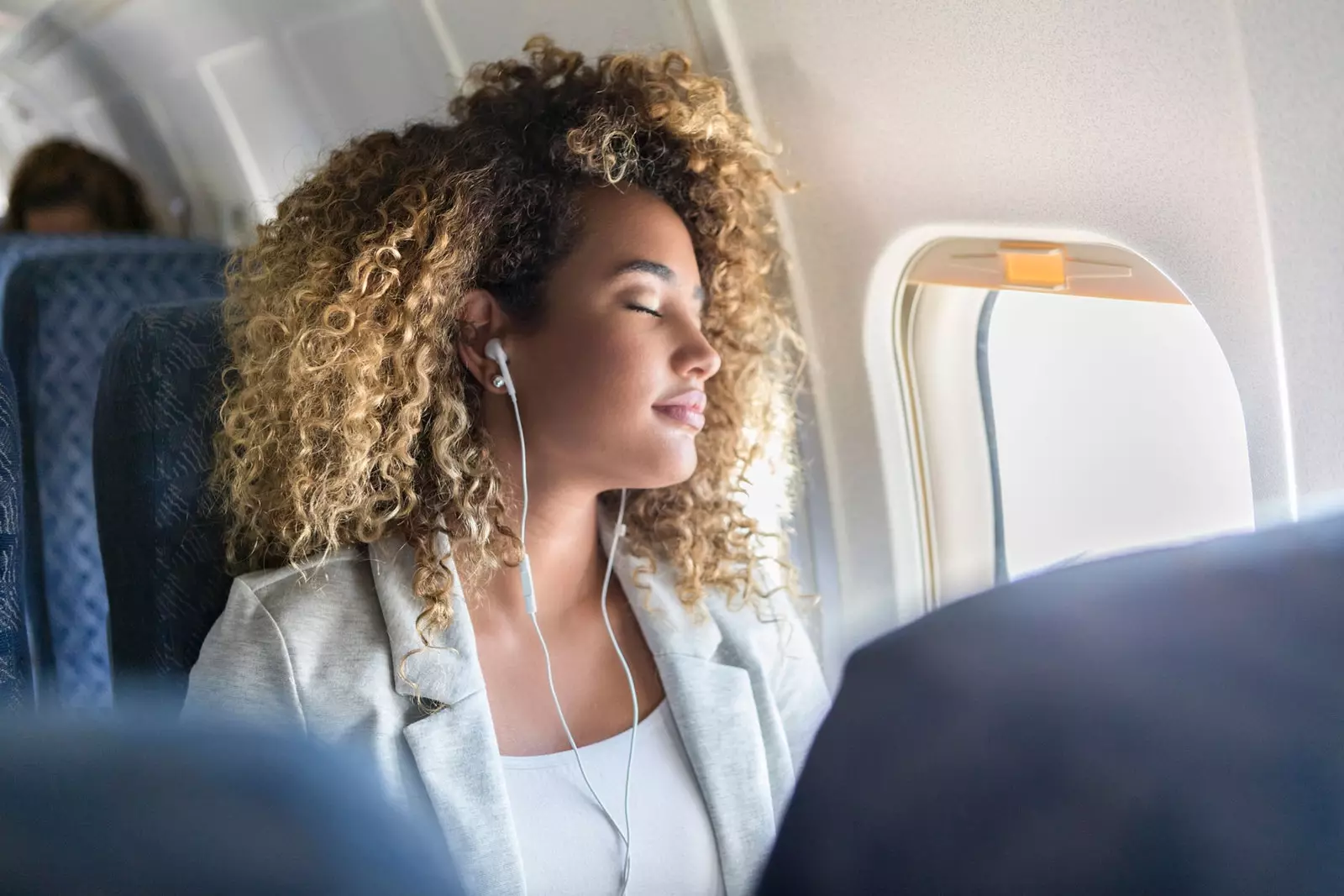
"There is no valid formula, but what I do recommend is trying to sleep whenever possible"
When we imagine a long-haul flight, it is inevitable to think of jet lag, and that is the time difference to which we are going to subject our body It is one of the effects that most worries the traveler when flying.
We will get to that, but before landing, there are other factors that our body can be subjected to during the flight, from lack of oxygen, cosmic radiation (and this is not magic although it may seem so) or even loss of taste.
Raise your hand if you haven't come back with a cold from a long flight. Something that we always attribute to the low temperatures that are usually in the cabin has nothing to do with the cold or the heat.
We do not get constipated because a flight attendant has decided to put the cabin as if we lived in Siberia, but because in a low-humidity environment like an airplane, viruses spread much more easily and we, vulnerable humans, become more susceptible to colds and respiratory infections.

Jet lag?
Hence the importance that in the aircraft cabins the air is continually refreshed and filtered regularly. State-of-the-art aircraft such as the Airbus A350 already have the latest air purification techniques that, of course and without alarmism, are safe to breathe.
And it is that the air that is breathed inside the airplanes is a key factor for our senses, even for taste. have you ever wondered why food tastes different (we say different, not bad, that's another story) inside an airplane? Well, it's through the air, and by dry air.
This is confirmed by a study by Cornell University, which confirms that the noisy, dry and even claustrophobic environment that is experienced inside the cabin really it can change the flavor of the food being served.

Have you ever wondered why food tastes different?
There is data that speaks that a third of the passengers of an airplane their taste buds go numb, while the dryness and pressure in the cabin also affects our ears. This is confirmed Paula Fernandez-Miranda Lopez , FEA (facultative area specialist) of Otorhinolaryngology at the Torrecárdenas Hospital in Almería.
“The pressures due to changes in altitude fundamentally affect the ears. In healthy people it should not be a problem, although it is advisable to chew gum during takeoffs and landings because it can help perform tubal decompressions (of the tubes) during ascent and descent”, confirms Fernández-Miranda.
And she continues: “In the case of babies it is a little more complicated because they are more immature and their Eustachian tubes suffer a little more. That's why they tend to cry on takeoffs and landings. One solution is usually to suckle during ups and downs, because the suction (a bottle, or simple chewing) helps them open the tubes and moderate these pressure increases.
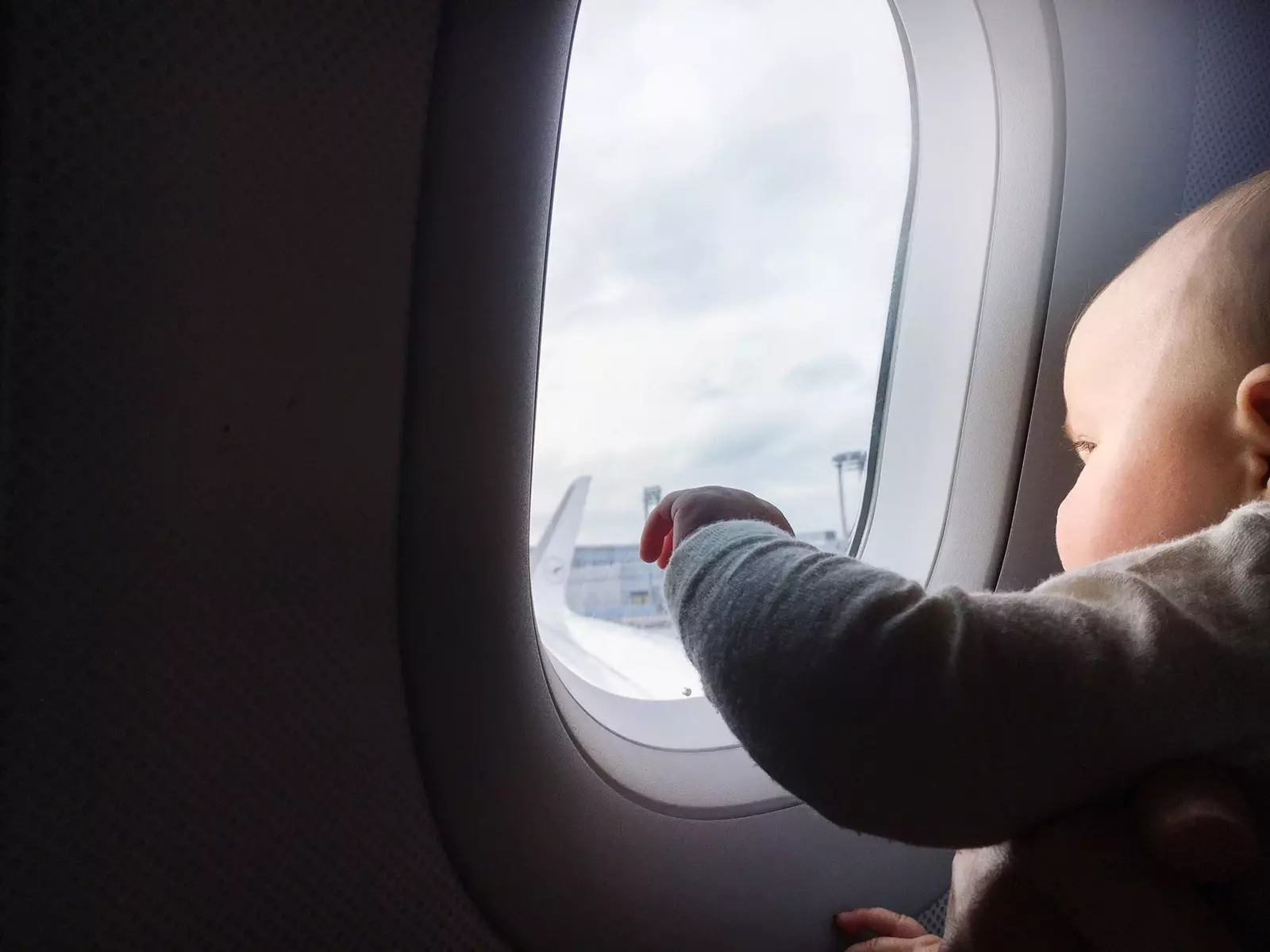
Babies tend to cry during takeoffs and landings because their Eustachian tubes suffer a little more
PRESSURE... WHAT?
words like pressurization (pumping of compressed air in the cabin that guarantees our safety and comfort on board) are today the order of the day if we talk about well-being on an airplane.
Aircraft cabins are pressurized to 75 percent of normal atmospheric pressure. which prevents, not in all cases, that the lower levels of oxygen in the blood can cause hypoxia, which generates a feeling of dizziness, fatigue and even headaches that especially occurs when landing, along with the dreaded jet lag.
“Jet lag affects us fundamentally because our normal circadian rhythm is disturbed (That's what the sleep-wake hormonal cycles and the changes that occur with them are called) ”, comments the expert, “for this reason, until there is an adaptation the body is as if lazy, although it is not only due to sleep deprivation, that too, but because just getting up is when we usually have a high peak of the hormone that makes us alert, cortisol.
If the peak of that hormone happens in another country where it turns out to be 4 in the morning, well our body is alert, it is impossible for it to sleep”, she concludes it.
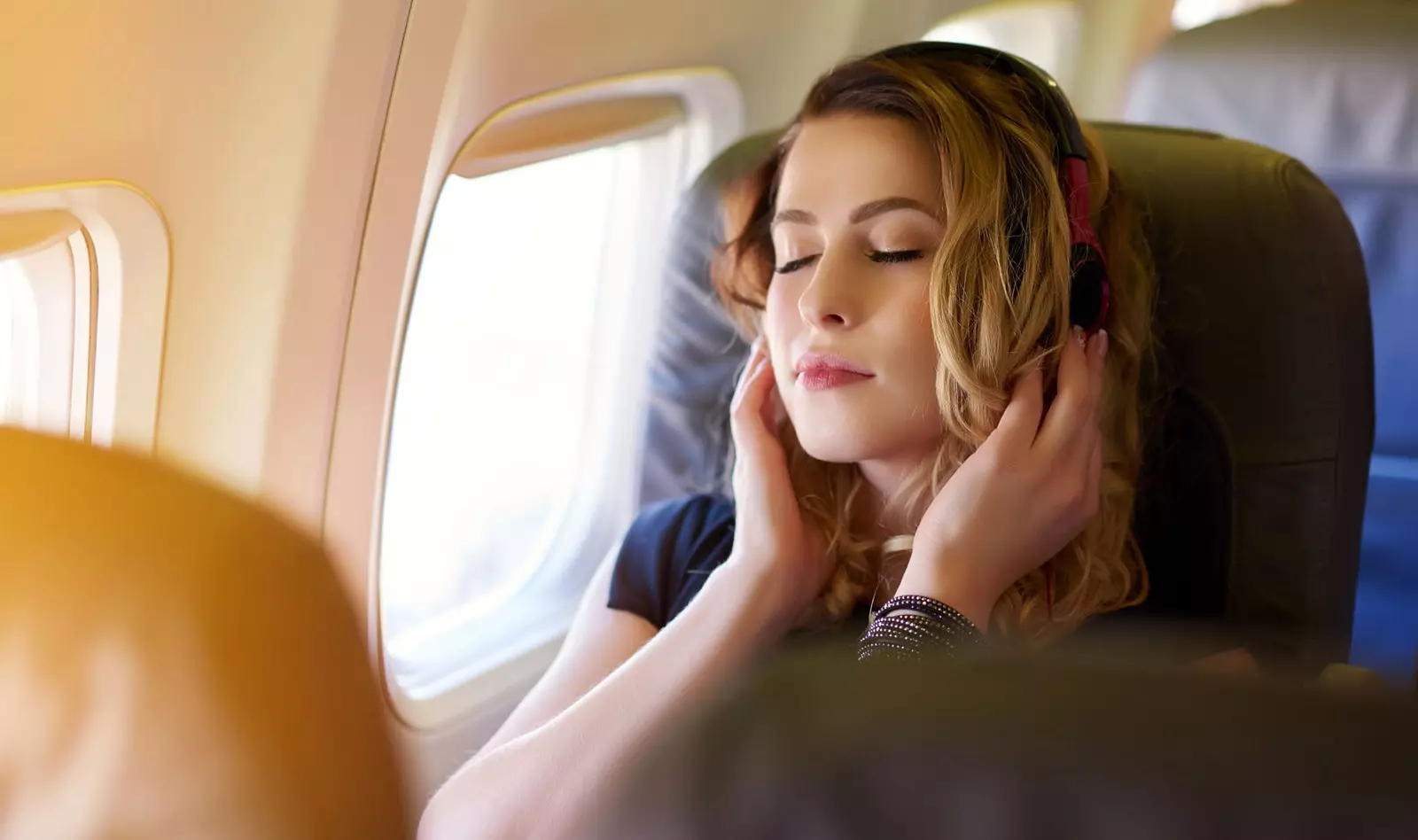
The lack of oxygen, cosmic radiation or even loss of taste are some of the factors to which we are subjected
And if after all this you're wondering how a pilot manages to overcome the dryness of the air, avoid colds, pressure changes or jet lag, we have already done it before you because yes, we also needed to know the secret.
For Javier Sánchez, airline commander, “there is no secret”. Although (thankfully) he continues: “What we pilots do is manage rest. The regulations regulate how, when, where and for how long we must rest, but we are the ones who know our body best and what we must do to be prepared and face the next day of work”.
For Sánchez “there is no valid formula, but what I do recommend is try to sleep whenever you can, what you take Many people do not know that every year we undergo a medical examination and therefore take care of our health, in my case I try to maintain a good physical form and some control in my diet”.
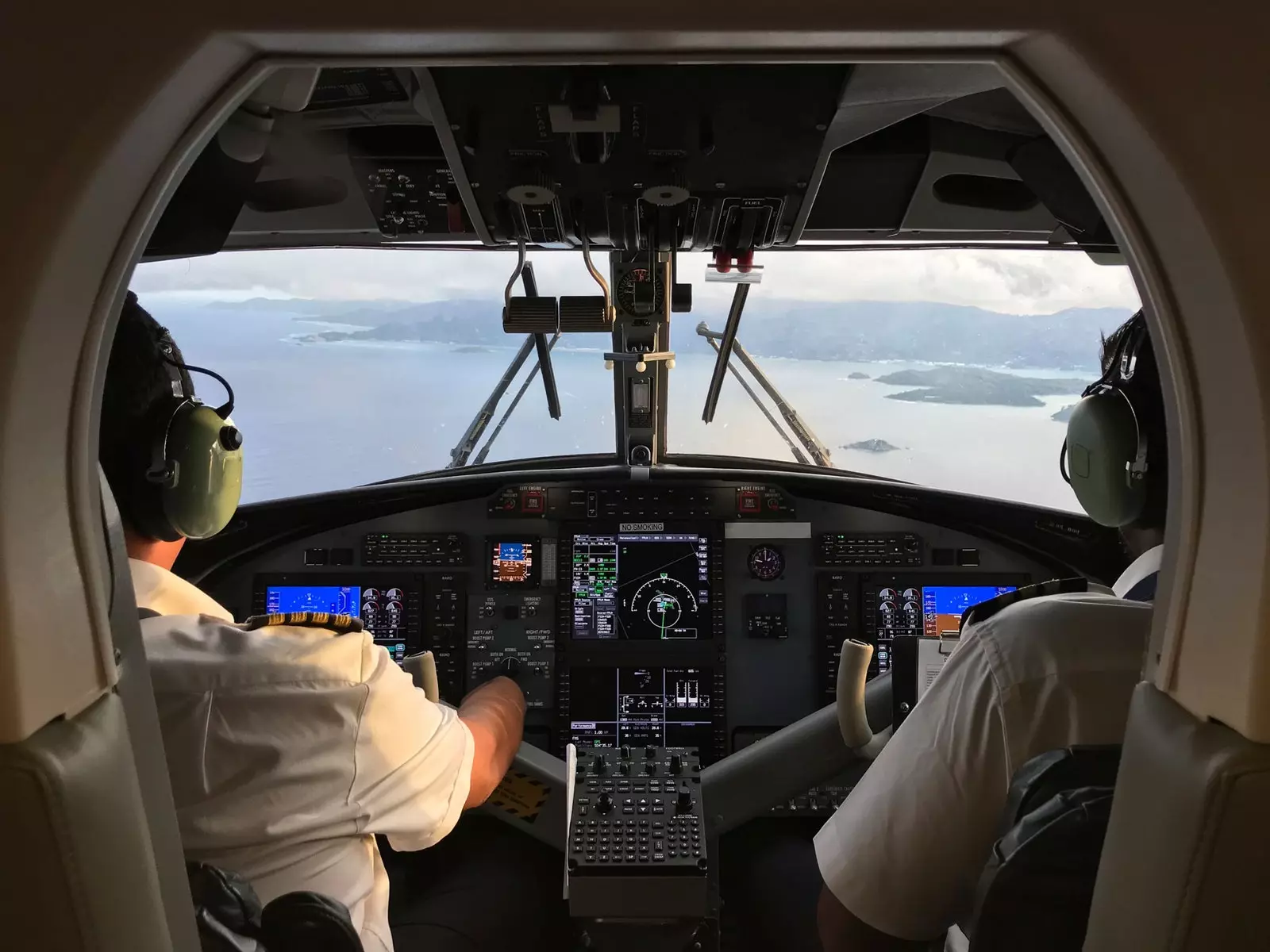
"What we pilots do is manage the rest"
Sleep deprivation, or the inability to sleep , is considered by many to be one of the most serious health problems in the modern world. There are numerous causes that make it difficult to sleep, such as stress or poor diet although the jet lag It is one of the most obvious and common if the difficulty in falling asleep happens when we are traveling.
A good thing and a bad thing; the incredible ability we have to visit countries in a matter of hours has never been so easy, on the contrary, the havoc that crossing multiple time zones wreaks on our bodies, too.
“If you are about to embark on a 12-hour flight, it is important to set goals, but above all I advise rest, a lot of rest to face the time change that awaits us at destination”, Sanchez confirms again.
And he adds: “once in flight you have to hydrate very well; it is important to drink plenty of water and it is essential to eat even if we do not feel like it. Practicing some kind of stretching on board is also good advice.”
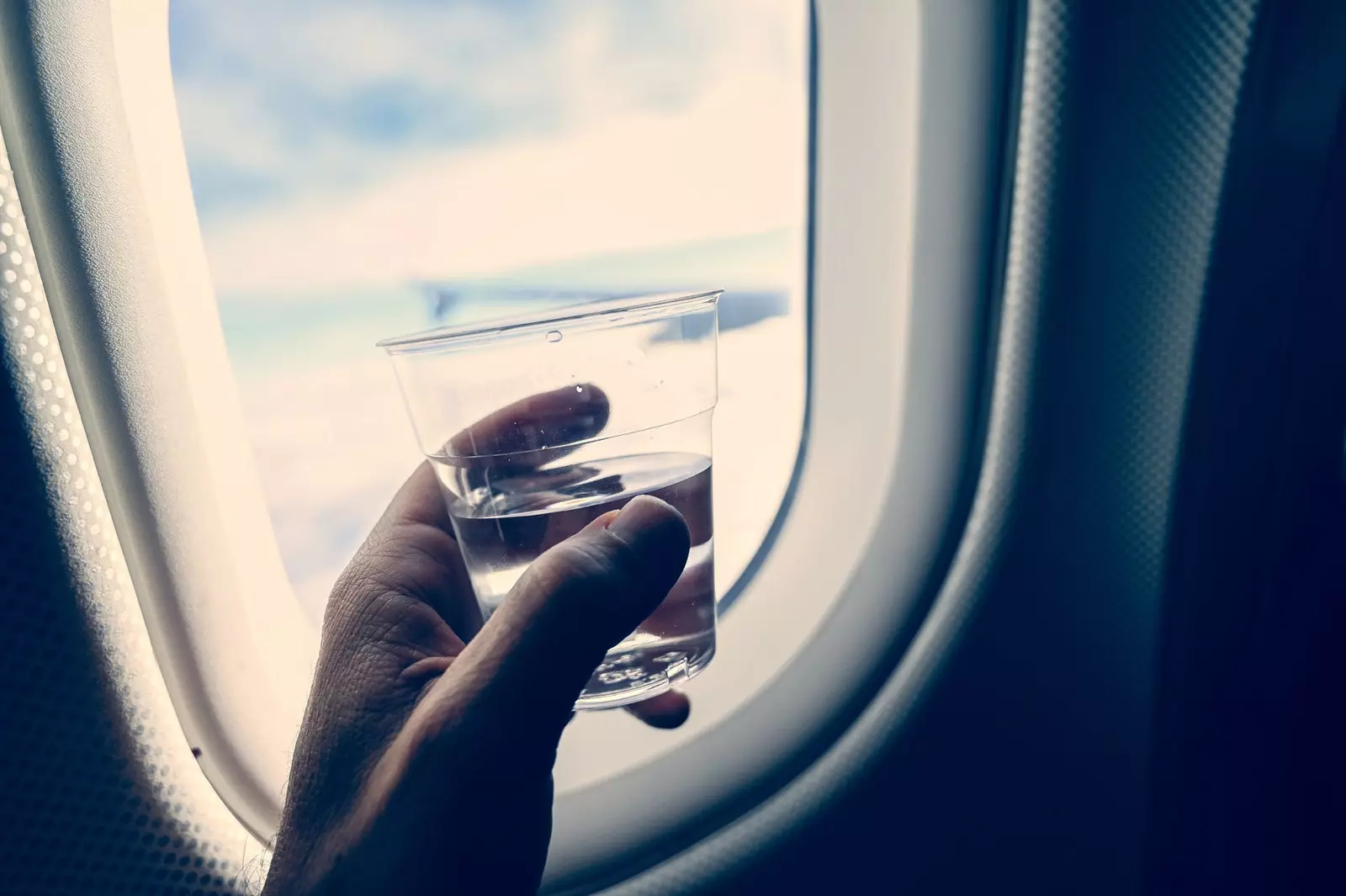
Remember to stay hydrated!
WHAT ABOUT MY GLASS OF CHAMPAGNE?
The theme of the hydration it is, indeed, the great workhorse of aviation (some airlines already charge for the second alcoholic drink, for example) and not drinking alcohol is one of the most common tips when facing a long flight.
But how harmful is it to drink alcohol once on board? Unfortunately for many, yes. The theory confirms that one of the main effects of alcohol (besides the obvious drunkenness), is that dehydrates, and that at 35,000 feet of altitude can wreak havoc on our body (go for god) .
Still, it's okay to have a drink, toast the trip and start thinking about the destination. And precisely to prevent jet lag from ruining the first days of the trip, Sánchez knows what to do: “You have to adapt as soon as possible to the eating habits and schedules according to the country you visit –a piece of advice is to change the clock time as soon as you board–"
My advice is a good rest in flight if we fly west, that is to say, from Spain to America to then prolong the day that happens to have about 30 hours instead of 24”, he concludes.
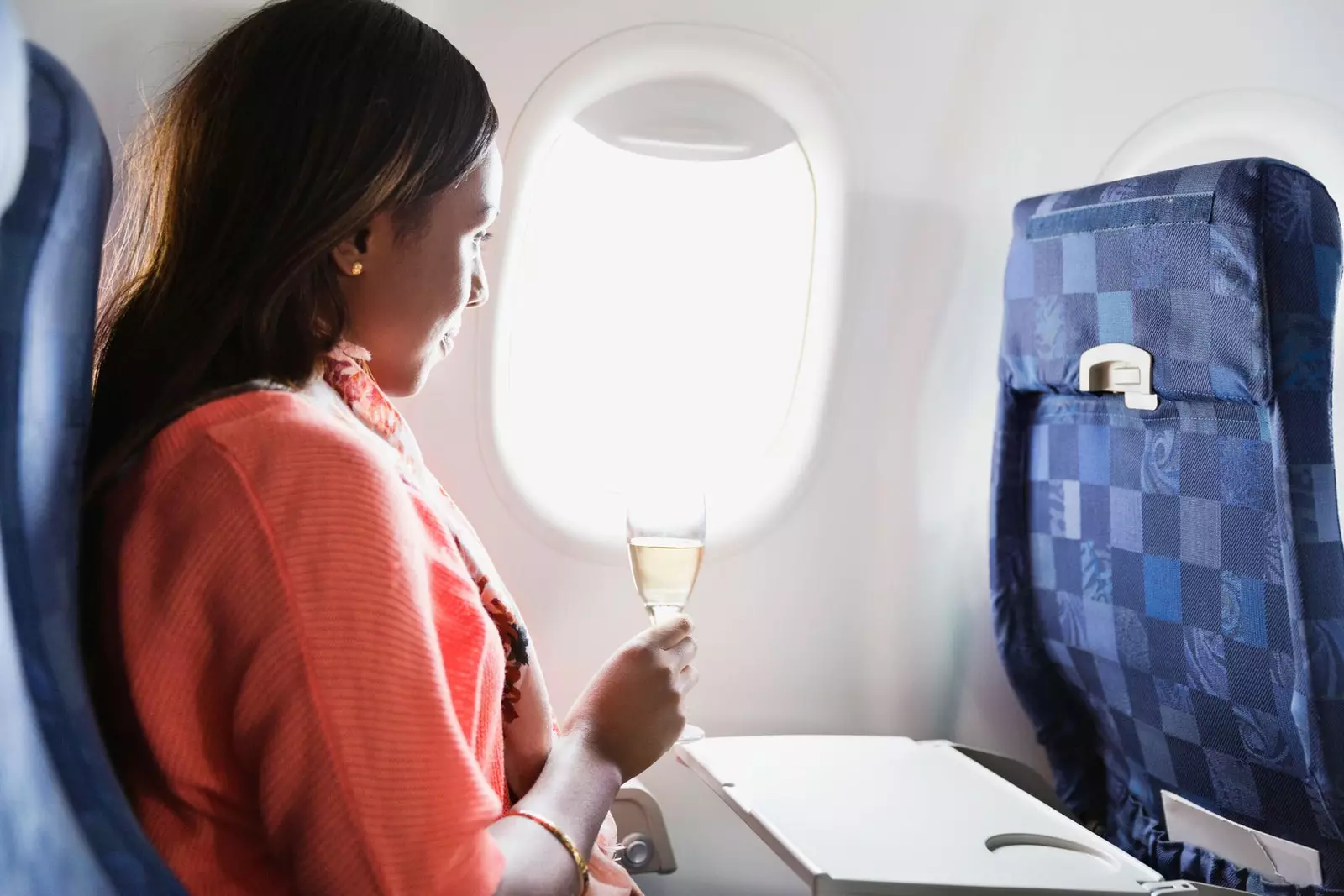
And my glass of champagne?
